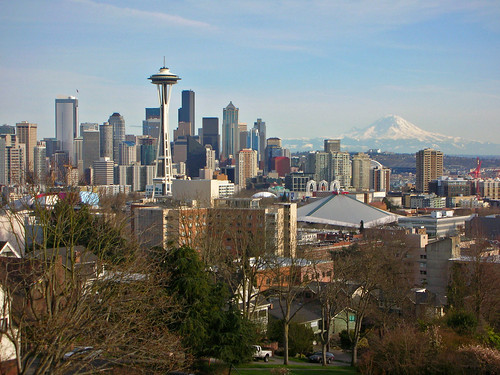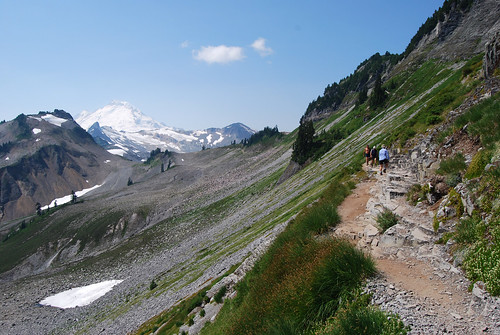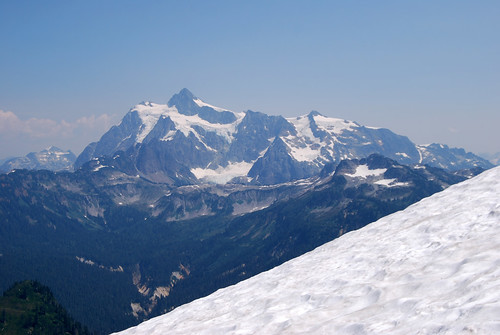The Tale of Rívorí

O red Rívorí, great Goddess of Wildfire, please protect my city and cast plagues upon my enemies! You are the most cunning and powerful goddess of Them all!

When red Rívorí was but a youth, She would spend Her days taking care of the castle and tending to the town. Her twin brother Zhoro, God of Heat, on the other hand, always went off hunting in the wilderness. He would often be gone for fourdays upon fourdays, while Rívorí would keep the servants and townsfolk orderly and content, and the structures maintained and beautiful. Since Zhoro was a few minutes older, He could do whatever He pleased, knowing that Their father Zhíanoso, High God of Fire, would grant to Him great powers befitting the eldest child.
One day, when Rívorí and Zhoro were not yet fifteen years old, Zhoro returned from a long hunt to find Rívorí stirring a pot of red bean stew. Zhoro, even though He had eaten quite well on His hunt, offered His sister His birthright as eldest, if only She would give Him some stew. It smelled and looked that good. The red goddess knew She could always use more power to complete Her tasks more efficiently and properly, so She gladly accepted Her brother’s offer. Zhoro ate the stew in big mouthfuls while Rívorí sat back and watched, content to know the day would soon come that Zhíanoso would grant Her Her new birthright.
When Their fifteenth birthday arrived, Zhíanoso held a grand celebration in His children’s honor. The climax of the party would be the granting of Zhoro’s new powers. Zhoro and Rívorí both knew, however, that the abilities were to be Hers. To trick Her father, Rívorí dressed as a man and painted Her skin blue to match Zhoro’s. She also took red, furry goatskins and fashioned a beard and arm coverings so She would appear even more like Her hirsute brother. Meanwhile, Zhoro shaved His beard and dressed in Rívorí’s clothing, painting His face red to appear as Her.
At the celebration, Zhíanoso called for everyone’s attention and then proceeded, in an elaborate ceremony, to grant Rívorí-as-Zhoro great powers over volcanoes and all forms of fire, plus the right and responsibility to judge souls at the end of time. All the gods and demigods in assemblage applauded enthusiastically, whereupon Rívorí gave a deep bow. When She straightened, She pulled off the beard, revealing Her true identity.
The crowd gasped. Zhíanoso chuckled.
Rívorí thanked Her father for His wonderful gift, then announced She had a gift to give, as well. From a pouch on Her belt, She pulled a golden apple and held it aloft for all to see. Declaring that the apple was intended for the most beautiful goddess in the room, She tossed it into the crowd. Immediately three goddesses lunged for it and claimed the apple as Their own: Nuvíní, High Goddess of Earth; Vítí, Goddess of Ice; and Rana, Goddess of Clouds.
As the three goddesses burst into argument, Rívorí laughed aloud and departed to test Her new abilities. She sparked a fire in a wide grassland and easily coaxed it into an inferno reaching from horizon to horizon. A storming wall of flame roared across the plains, guided by Rívorí’s new skill. She quickly extinguished the fire and tried Her volcanic powers. Drawing from the depths of the earth, Rívorí brought forth lava in a marvelous eruption, spewing glowing red rock for miles in every direction.
As for the final bestowed power, Rívorí could not test it, since the judging of souls would not take place till the end of time. She did, however, plan how She would destroy the wicked and soothe the good. Volcanoes, wildfire, plagues, and pain would be the eternity for the nasty and corrupt souls of the world. For the good, honest, and pure souls, Rívorí would bring them together in extreme comfort, with baths of warm milk, all the honey and delights they could desire, and marvelous music performed by beautiful musicians.
Meanwhile, back at Zhíanoso’s celebration, the gods finally separated the three fighting goddesses. Sozho, High God of Air and King of the Gods, refused to make a judgment as to the most beautiful goddess, for fear of raising the ire of the other two. Instead He decreed that this conflict must be decided by a mortal man who had never met any of the three goddesses. Sozho selected Prince Vélaíso of Tolo for this task. Hívo, God of Clean Water, guided the three goddesses to Tolo and explained the situation to Prince Vélaíso. The mortal prince was astonished to be charged with such a job, but quickly accepted and began evaluating the beauty of each goddess.
Nuvíní was resplendent in a lush brown ermine dress. Her face was a perfect oval, accentuated by Her cow-like eyes. Upon Her head, She wore Her bejeweled crown, fit for the Queen of the Gods. As Vélaíso admired Her amazing features, the earth goddess offered to make him the king of all the lands within a hundred days’ ride in all directions. The prince believed She could do this, and longed for such power, but held his judgment.
Next was Vítí, Whose blue and black gown, offset by Her startling white skin, astonished every assembled male with the way it highlighted every aspect of Her femininity. Vítí offered the prince exceptional skill and wisdom in the craft of war, which he also longed for. Nevertheless, Vélaíso sized up the ice goddess and once again withheld his decision.
Lastly, the prince viewed Rana. As was Her wont, the dazzling goddess was clad in nothing but clouds which drifted to and fro, enticing Vélaíso with glimpses of luscious thighs, glorious breasts, and Her free-flowing hair. While the mortal sat in stunned amazement, the sexy goddess promised to grant Prince Vélaíso the love of the most beautiful woman in the world.
Whether it was Her extreme lack of clothing or the offer She presented, Vélaíso gave the golden apple to Rana. Thusly, Rana gave Vélaíso the undying love of the most beautiful woman in the world, who was named Séraíní. Séraíní was already betrothed to the king of Rokího, and yet when Vélaíso sailed to Rokího, Séraíní gladly boarded his ship. As the two lovers sailed back to Tolo, the king of Rokího raised an army and a fleet of ten thousand vessels. Soon it became apparent to all that Tolo would face a major attack.
Rívorí saw this and, for She shared some blame due to Her apple joke, pledged to protect the city of Tolo. When the horde of Rokíhoans stormed the shore, Rívorí met them with a wall of fire a mile high. The invaders retreated to the safety of their ships, but did not sail away. As Rívorí guided the Toloans in construction of superior fortifications, She wondered why the Rokíhoans remained.
Soon the Rokíhoans attacked again. Rívorí sent a flood of lava rolling down the hill at them, burning everything in its path. Much to Her surprise, however, the lava abruptly cooled when it neared the advancing army. The soldiers charged right over the new, cold rock as if had been there for years. Clearly, a god was helping the Rokíhoans, but Who?
The invading army reached the city walls and soon a great melee ensued. Death and mayhem ruled the day. Before Tolo could fall, Rívorí had to do something. Quickly, She unleashed a plague upon the invaders, filling their lungs with the fire of disease. The plague spread like wildfire throughout the battling mortals, infecting Rokíhoans and Toloans alike. Rívorí healed the Toloans while they fought, so they hardly even noticed the plague. The Rokíhoans’ god did nothing at first to save His army, but as they retreated in a most sickly manner, the soldiers noticeably began to heal. The rout could not be stopped however, and they retreated fully back to their ships.
During the tumult, Rívorí had the king of Rokího captured. The Toloans took him to their dungeon, where the fire goddess sat down to have a little chat with the king. She asked him which god was aiding his army. The king refused to answer. Rívorí burned his skin with a glowing iron and asked again. The king writhed in agony, yet still refused to answer.
After beating the iron rod into a finely crafted sword, red Rívorí began flaying the skin from the king’s legs. As the king howled in agony, She ignited the raw flesh and asked Her question once more. Through his screams, the Rokíhoan king gasped Vítí’s name. Quickly extinguishing the flames, Rívorí considered his answer. As the ice goddess, Vítí would quite naturally and adeptly cool Rívorí’s lava and Her plagues. Additionally, Vítí desired revenge because the Toloan prince had not selected Her as the most beautiful goddess. The king had answered truthfully.
Since Vítí’s ice would cancel Rívorí’s fire, the red goddess needed a different strategy. Although Vítí was wise in the ways of war, She was also traditional. Rívorí knew She could trick Her. The fire goddess proclaimed to the Rokíhoan king that his invasion was futile, the Toloans would crush his army, and the Rokíhoans should build Tolo a giant statue of a warhorse as a symbol of Toloan dominance, before fleeing back to Rokího. She then set the king free, outside the gates of Tolo.
The king raced back to his army and spread the news. He also consulted Vítí. The ice goddess tut-tutted Rívorí’s attitude and, exactly as the fire goddess expected, decided to use Rívorí’s demands as a means to trick Her. No one, however, can out-scheme the red goddess. Vítí instructed the king to build the horse statue as Rívorí ordered, but make it hollow such that the Rokíhoan army could hide within. Then, according to Vítí’s plan, when the Toloans brought the statue inside their city and got drunk celebrating their victory, the Rokíhoans could emerge and slaughter the Toloans.
The Rokíhoans built the horse statue using wood from a few ships and hid inside, with a few sailors remaining without to guide the rest of the fleet away. The Toloans spotted the statue and the empty port. Trusting Rívorí, they pulled the giant wooden horse into the city. Once the gates had closed behind the statue, effectively hiding it from Vítí’s view, Rívorí promptly incinerated the horse and all the men secluded within.
The Toloans celebrated wildly, for Rívorí had successfully defended their city. Not an enemy of Tolo was to be found within a hundred days’ ride in all direction. Prince Vélaíso and Princess Séraíní held a glorious wedding, all the while honoring Rívorí for Her wisdom, strength, and determination, as well as Her supreme defense of cities under Her care.
We, too, must honor Rívorí, for She is indeed the greatest and strongest goddess, Who will always defend Her people and unleash great pain and death upon our enemies. Live a pure and honorable life, for your soul must survive red Rívorí’s judgment at the end of times. If evil overcomes you, you shall spend an eternity burning in Rívorí’s dungeon. Be true to Rívorí’s wishes, and your soul will forever dwell in the land of milk and honey.



 Hawaii: a nice place to visit and a distinctive flag.
Hawaii: a nice place to visit and a distinctive flag.
 Scotland: I've never been there, but I'm part Scottish. Clan Logan!
Scotland: I've never been there, but I'm part Scottish. Clan Logan!
 Slovenia: I visited Slovenia in 2005 and searched Ljubljana for a store that sold flags, but to no avail.
Slovenia: I visited Slovenia in 2005 and searched Ljubljana for a store that sold flags, but to no avail.
 Sri Lanka: I've never been there and have no intentions of visiting, but . . . cool flag!
Sri Lanka: I've never been there and have no intentions of visiting, but . . . cool flag!





















